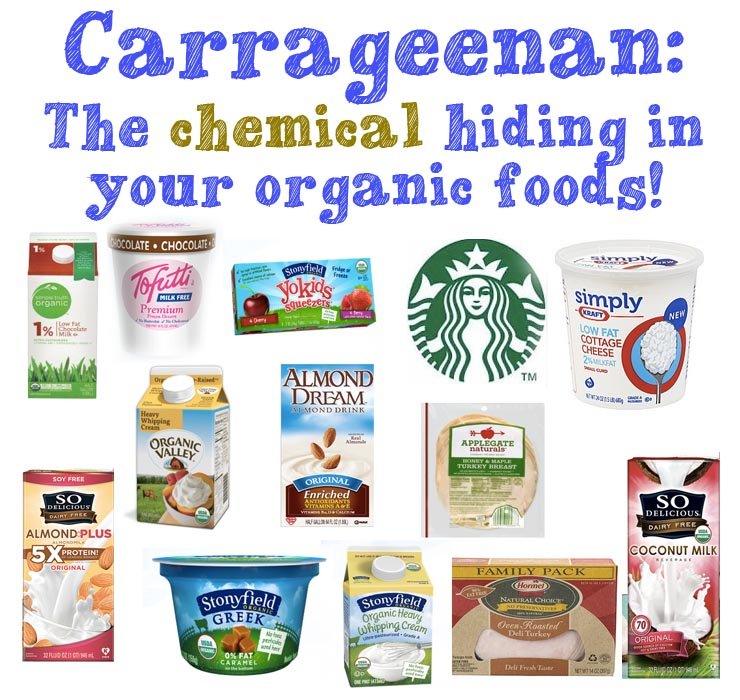
If you’ve ever purchased store-bought almond or coconut milk, you may have noticed an ingredient called Carrageenan on the carton. This hard-to-pronounce little additive is the reason I make my own homemade almond milk and homemade coconut milk, but it seems that there is a lot of confusion when it comes to this little known ingredient.
What is Carrageenan?
According to the Google:
“Carrageenans or carrageenins are a family of linear sulfated polysaccharides that are extracted from red edible seaweeds. They are widely used in the food industry, for their gelling, thickening, and stabilizing properties.”
Edible seaweeds, like kelp and Nori, right? – Not so much…
The problem with Carrageenan
It is important to note that Carrageenan is not digestible and has no nutritional value. It is often used because it thickens and emulsifies products and it is often found even in organic and “natural” products.
It may seem that a simple product derived from seaweed should be non-menacing, and I wish it were. This article explains some of the potential problems:
“Although derived from a natural source, carrageenan appears to be particularly destructive to the digestive system, triggering an immune response similar to that your body has when invaded by pathogens like Salmonella. The result: “Carrageenan predictably causes inflammation, which can lead to ulcerations and bleeding,” explains veteran carrageenan researcher Joanne Tobacman, MD, associate professor of clinical medicine at the University of Illinois School of Medicine at Chicago. She says the food ingredient irritates by activating an immune response that dials up inflammation. Her previous work showed a concerning connection between carrageenan and gastrointestinal cancer in lab animals, and she’s involved with ongoing research funded through the National Institutes of Health that is investigating carrageenan’s effect on ulcerative colitis and other diseases like diabetes.
The concern over food-grade carrageenan isn’t new. Beginning in the 1960s, researchers started linking the ingredient to gastrointestinal disease in lab animals, including ulcerative colitis, intestinal lesions, and colon cancer.”
Joanne K. Tobacman, M.D., associate professor of clinical medicine at the University of Illinois College of Medicine is one of the leading researchers in the field of digestive health sheds some interesting light on the topic:
“Dr. Tobacman said that her research has shown that exposure to carrageenan causes inflammation and that when we consume processed foods containing it, we ingest enough to cause inflammation in our bodies. She explained that all forms of carrageenan are capable of causing inflammation. This is bad news. We know that chronic inflammation is a root cause of many serious diseases including heart disease, Alzheimer’s and Parkinson’s diseases, and cancer.
Dr. Tobacman also told the board that in the past, drug investigators actually used carrageenan to cause inflammation in tissues in order to test the anti-inflammatory properties of new drugs. And she reported further that when laboratory mice are exposed to low concentrations of carrageenan for 18 days, they develop “profound” glucose intolerance and impaired insulin action, both of which can lead to diabetes.”
The Bottom Line
There is evidence that it can be harmful, especially if consumed regularly.
Many people report reacting strongly to Carrageenan with symptoms like digestive troubles, skin rashes, and other health problems.
The research is shaky on whether carrageenan is a carcinogen or not, but I’m yet to see any research touting its health benefits. Our family avoids it for this reason, especially as it is just used for thickening products and does not serve a nutritional purpose.
Katie – The Wellness Mama Cookbook
